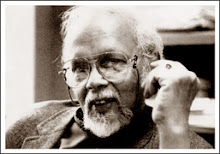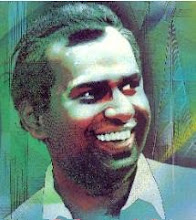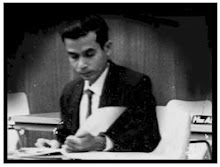Author: Anjana Gamage
Source: Daily News
DRAMA: "We will not directly speak on peace. But the entire audience who view our dramas will realise that it as a collective work by both Sinhala and Tamil theatre loving groups.
For example, Tamil artistes would play roles in Sinhala dramas and Sinhala artistes would perform in Tamil dramas.
The presentation of our theatre production, would provide some kind of a signal to the inner thoughts of the viewers in an exemplary manner", points out veteran small screen and stage drama director Parakrama Niriella.
|
|
"Jana Karaliya" or " Makkal Kalari" in Tamil means theatre of the people. "Jana Karaliya", a drama and theatre activities group, which focuses their programmes throughout the country, was a brain concept by Niriella two years ago.
Speaking on the object of "Jana Karaliya", Niriella said: "Jana Karaliya" was launched in July 2004, just two years ago. But I had immense experience in handling theatre production with Haththotuwagama in 1970s when we were doing the production of "Sitha and Rama".
However I had a difficulty with the term of 'performing space' in stage dramas. We were used to call the stage in Sinhalese as "Ranga Madala" or "Karaliya" or " Vedikawa".
But in Europe, although they called it "Stage" when it comes to use, it means a lot. The stage dramas should go to the ordinary people. We should offer it in more attractive way rather than it was".
Describing the activities of the mobile theatre group of "Jana Karaliya", Niriella said that the unique of its mobile group is that it owned a huge tent that can accommodate thousands of theatre lovers at once.

"It is called new arena type theatre. The mobile theatre group in Colombo visit the area they chose and put up the tent there. From that point they start their theatre activities. The very first mobile theatre came to live from Anuradhapura.
Another one was held in Trincomalee. The mobile theatre is different from the applied theatre. We have a group consisting of Sinhala and Tamil youth of 25 members. The dramas produced by these members will be shown from time to time at the tent.
Apart from the performance, we will also hold drama workshop for youth and series of workshop and practical sessions for Sinhala and Tamil teachers in the area with the intention of promoting their knowledge on theatre which will assist them in teaching Drama and Theatre in schools".
|
|
This time "Jana Karaliya" has launched its Drama and Theatre programme in Puttalam District. "Jana Karaliya" Mobile Theatre Group arrived Puttalam in May and installed the Mobile Theatre at St. Mary's Tamil Maha Vidyalaya ground.
They will stay there till mid of July, engaging with Drama and Theatre activities. They have already started conducting Drama and Theatre appreciation programmes at Puttalam, Mahakumbukkadawala, Karuwalagaswewa, Anamaduwa, Vanathavilluwa, Serakkusiya, Kalpitiya and Nawagaththegama with the assistance of the Provincial Secretaries of those areas.
They will start Drama and Theatre appreciation programmes and workshops for school students and teachers after A/L examinations and holidays.
"Jana Karaliya Drama Festival", the most attractive item of their activity in the Jana Karaliya Mobile theatre started from June 23 and continue till July 3.
|
|
Jana Karaliya Sinhala and Tamil Drama production, "Charandas", "Seethambarapata", "Andaramal", "Devlowagamana", "Charandas Kallan", "Mayappattadai", "Erukkalam Poo", "Dewaloha Payanam" and Children's Plays of Saman Pushpakumara ("Ahankara Kiribabi and "Dangayo Ne") and Sumith Samarasinghe ("Soru Evilla") also included in the list of Drama Festival scheduled.
All the "Jana Karaliya" plays are collective efforts of the Janakaraliya Mobile theatre group that consists of Sinhala & Tamil youth.
Palitha Abeylal, Jayantha Kumara Muthuthanthri, Suneth Shanthapriya, Sokkalingam Krishanthan, Chaminda Prasad, Manjula Ranasinghe, Nishantha Kularatna, Sumudu Mallawarachchi, Thyagaraja Sivanesan, Muniyandi Kalidas, Verni Theresa, Ajanthan Shanthakumar, Arosha Tharanganee, Sineth Devinda, Dinesh Swarna Sri Livera, Sam Paul, Malithi Kumari, Praneeth Jeewantha, Chinthaka Kodithuwakku, Rasaiya Lohanadan, Selvaraj Leelawathi, J. Sr Devi and B. Radhika are performing artistes in all these plays.
H.A. Perera has composed music with the assistance of Sumudu Mallawarachchi and Tharindu Gamage. Palitha Abeylal is the sound controller, Ajanthan Shanthikumar is the lighting technician and Chaminda Prasad is the Make up Artist. Ravinda Mapitigama assists in choreographing and direction.
Dilip Rohana is doing the management while Parakrama Niriella and H.A. Perera leads the entire Jana Karaliya Programme.







































No comments:
Post a Comment